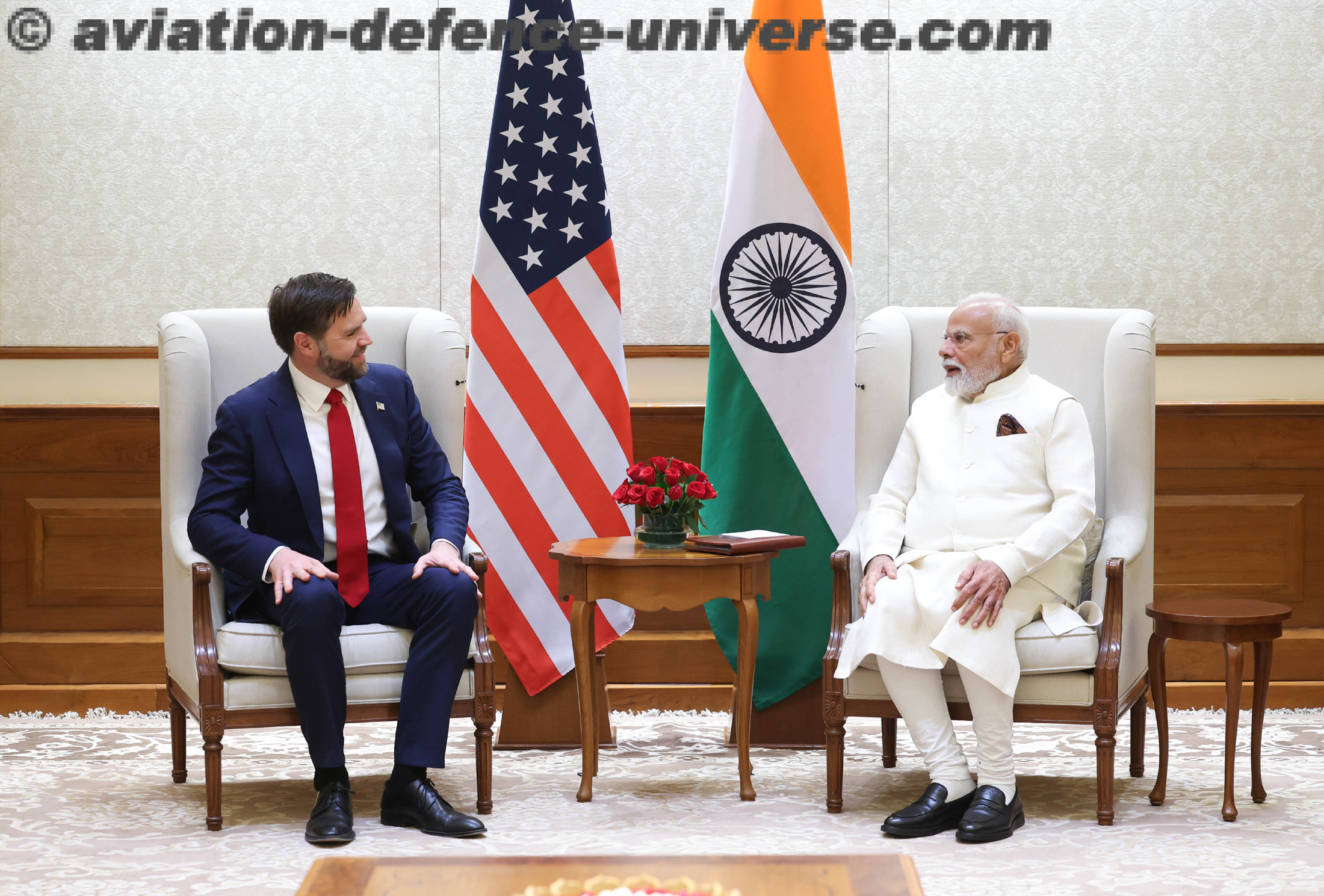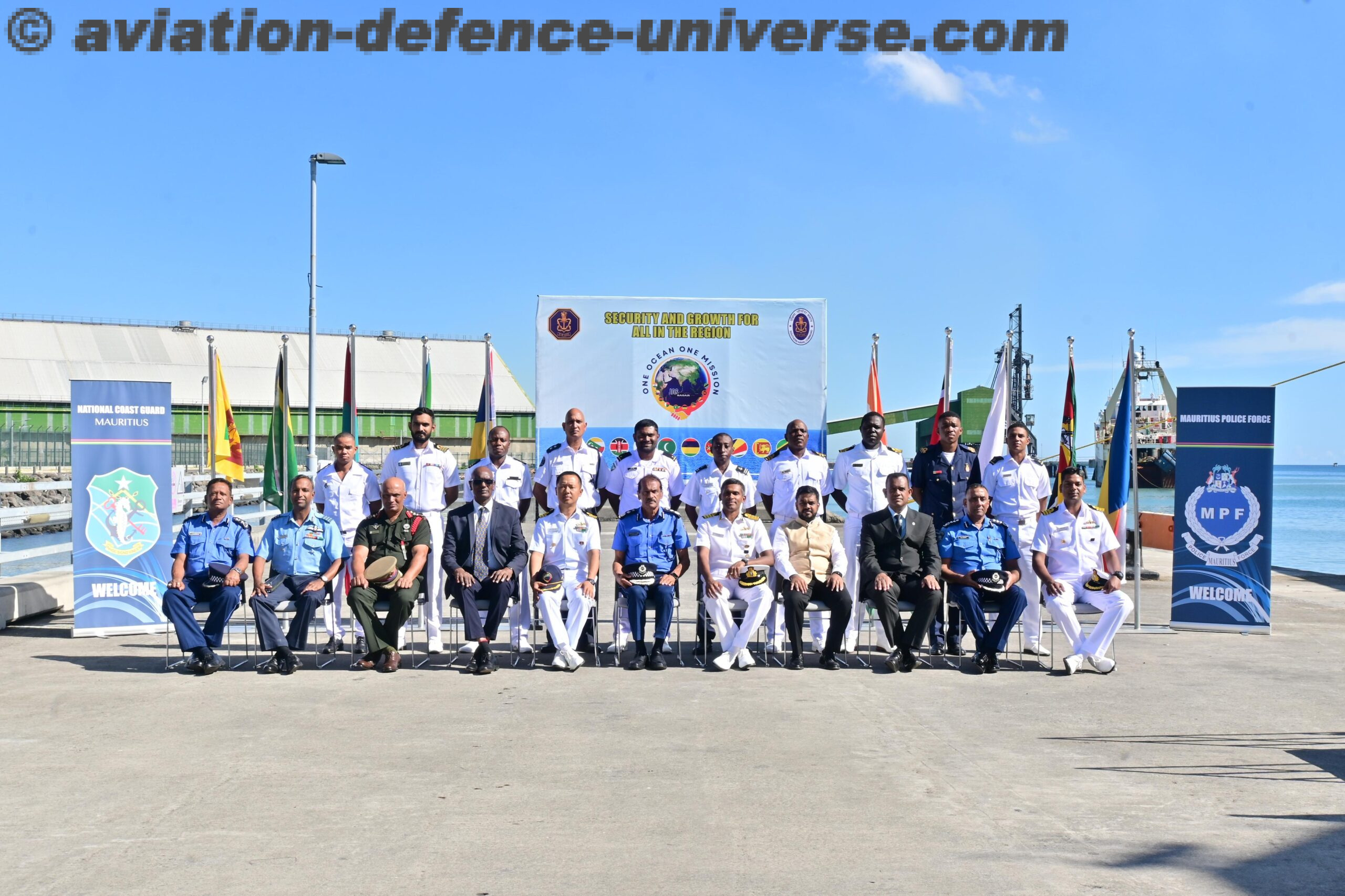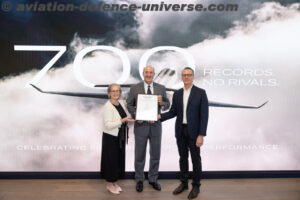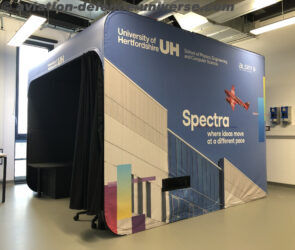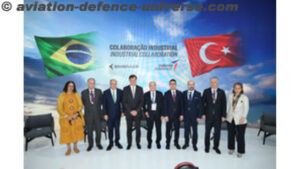- Traveller and Corporate cabin styling look to the past for an elegant future.
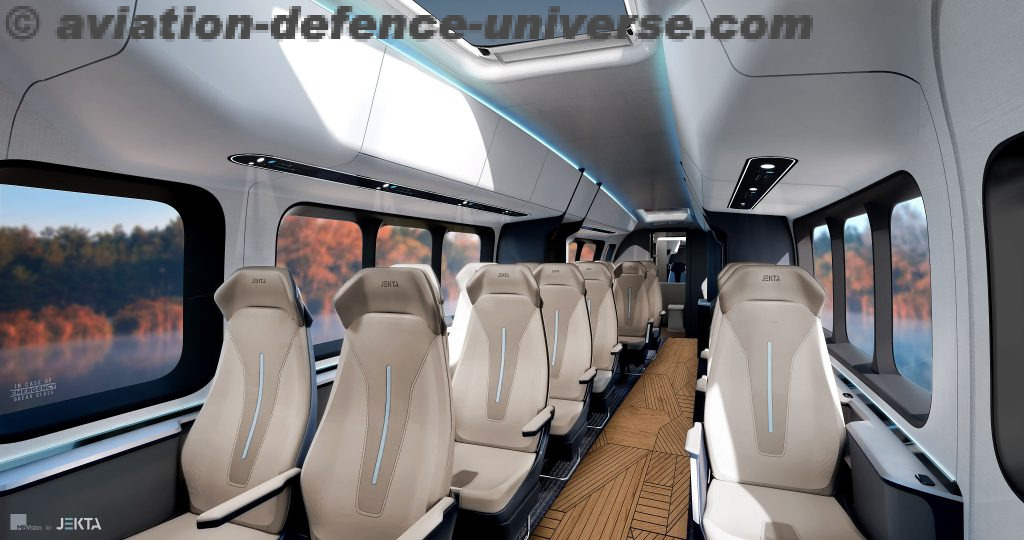 Payerne, Switzerland. 08 May 2024 . JEKTA, the Switzerland-based developer of the PHA-ZE 100, Passenger Hydro Aircraft – Zero Emission 100 amphibious aircraft, has unveiled the first interiors for its economy class Traveller and full executive Corporate cabin configurations. The interiors have been designed for passenger comfort, operational durability, and ultimate elegance, with each layout, material, and styling combining the glorious past and sophisticated future of amphibious flight.
Payerne, Switzerland. 08 May 2024 . JEKTA, the Switzerland-based developer of the PHA-ZE 100, Passenger Hydro Aircraft – Zero Emission 100 amphibious aircraft, has unveiled the first interiors for its economy class Traveller and full executive Corporate cabin configurations. The interiors have been designed for passenger comfort, operational durability, and ultimate elegance, with each layout, material, and styling combining the glorious past and sophisticated future of amphibious flight.
Mindful of the particular needs of operations that alight on and take off from both water and land, the interior designs acknowledge and incorporate the requirements of the innovative, new JEKTA family of amphibious airframes. The design process involved simulating how passengers, crew, pilots, operators, and maintenance teams will interact with the aircraft. The ergonomics focus on implementing cutting-edge solutions to deliver a combination of comfort, safety, and functionality within an airframe that provides multiple operating parameters. The interiors will adapt to support a range of applications, including multi-leg, regional passenger flights, experiential high-end tourism voyages, or intense roadshow itineraries for corporates and governments. Cargo, medevac, VVIP, and search and rescue variants will follow.
Industrial design studio MBVision applied its twenty years of aviation experience to integrate simplicity, modularity and lightness with durability, cleanliness, new materials, and functionality. The multidisciplinary team worked closely with partners, suppliers, and potential customers to shape the style. Design highlights include thin modular seating, which offers superior comfort while light in weight, and an aft lavatory, which will feature in the first production airframe. As a non-pressurized airframe, the PHA-ZE 100 design features are intended to shape an on-board experience which blends contemporary aviation form with elements from the marine sector: wooden-style flooring, galley-style refreshment or bar areas and expansive panoramic windows through which light pours emulate the at-sea experience, giving a brand-new feeling of space and freedom within the aircraft.
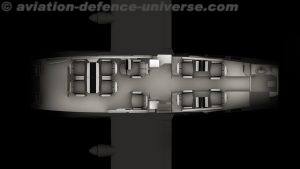 Connectivity is incorporated, enabling passengers and crew to be productive, entertained and in touch, even on short flights. With one eye on weight and one on aesthetics, JEKTA is working with pioneering material libraries to integrate next-generation flexible screens in the upholstery. The interior design also augments the aircraft’s sustainable ambitions by incorporating the zero-emissions concept into the aircraft interior. Selected materials are eco-friendly and can be recycled, yet do not compromise quality.
Connectivity is incorporated, enabling passengers and crew to be productive, entertained and in touch, even on short flights. With one eye on weight and one on aesthetics, JEKTA is working with pioneering material libraries to integrate next-generation flexible screens in the upholstery. The interior design also augments the aircraft’s sustainable ambitions by incorporating the zero-emissions concept into the aircraft interior. Selected materials are eco-friendly and can be recycled, yet do not compromise quality.
“We believe these interiors express our ambition of creating a disruptive, original style of travel within a new mode of transport. We have created an elegant cabin for airlines flying multiple legs daily alongside a stylish cabin that adheres to the principles of being environmentally friendly internally and externally. This highlights our commitment to providing a zero-emissions airframe that supports many applications,” explains Max Pinucci, who heads industrial design for JEKTA. “Our interiors follow all the necessary certification requirements yet set new standards of elegance and functionality to create an unparalleled on-board experience. We want our customers not just to fly but to feel that they are travelling in an environment designed around their needs, comfort, and safety. At the same time, we are meeting the operators’ needs in terms of ease of maintenance, operability, and profitability.”
Gayo Aviation, the global provider of private and specialist aviation services, will receive the first Corporate cabins, and MEHAIR, the Indian operator, will initially welcome the Traveller cabin to connect communities living around water.


















